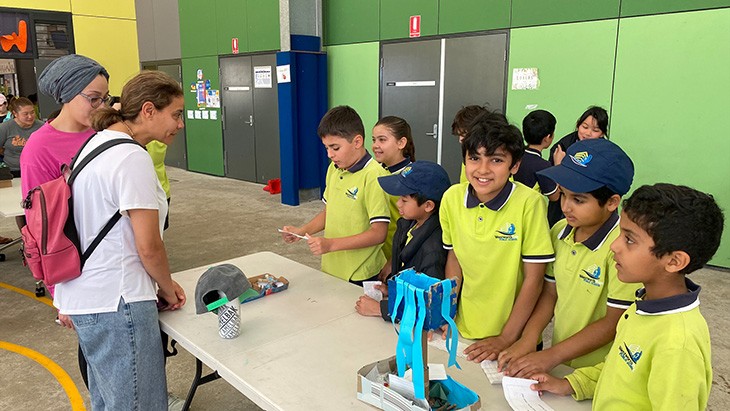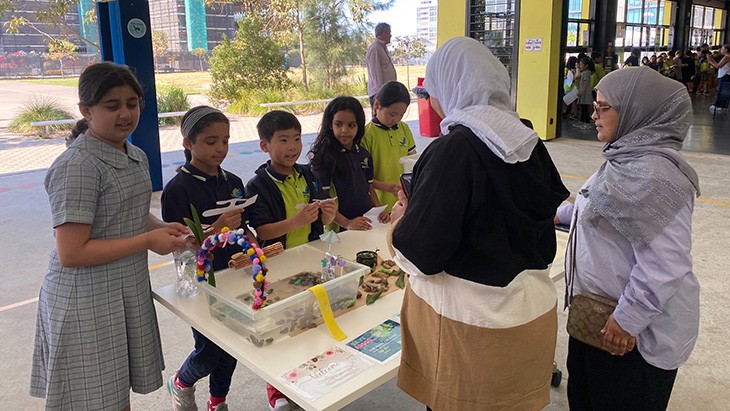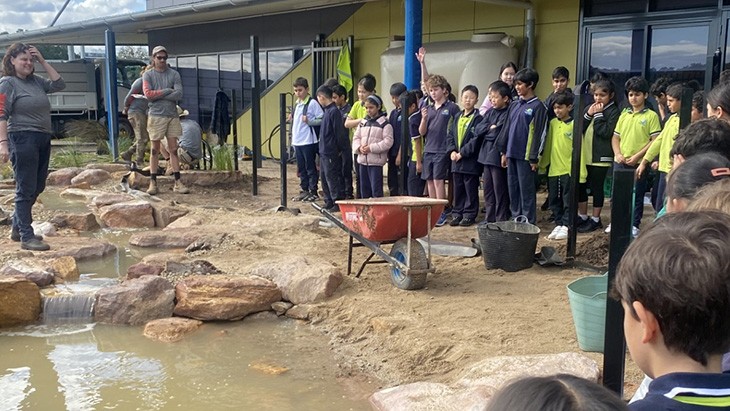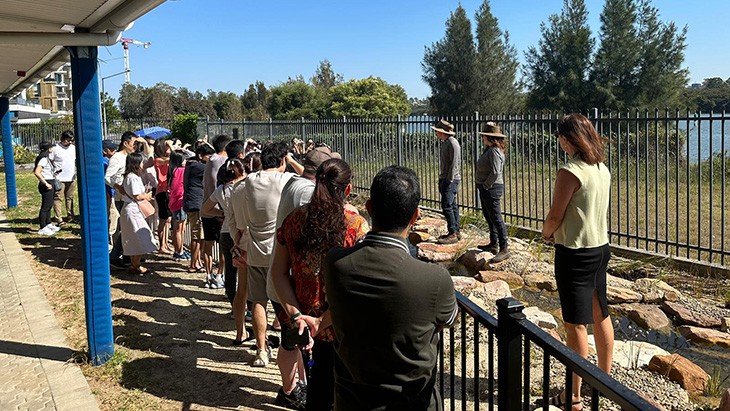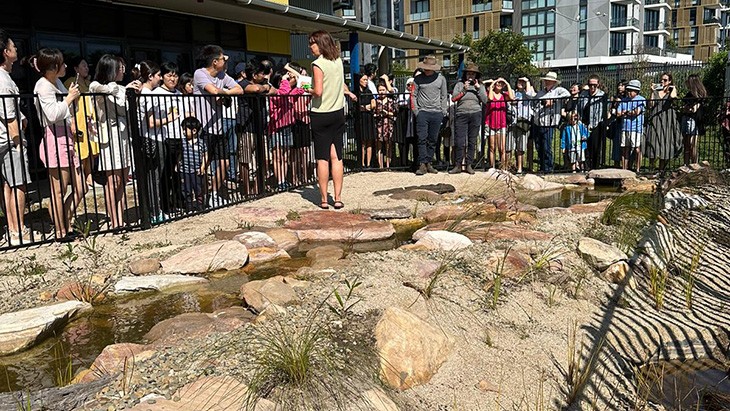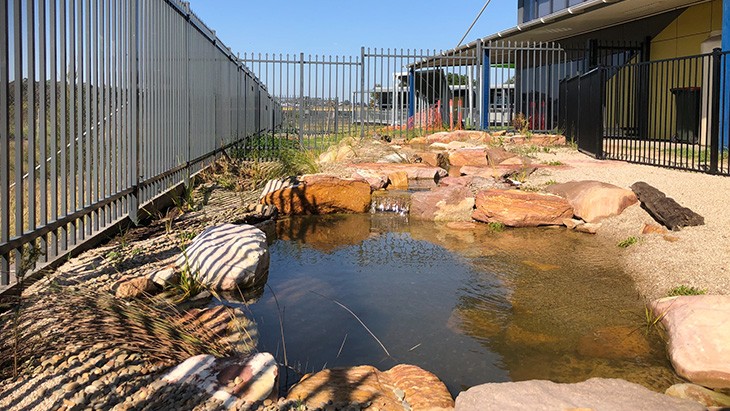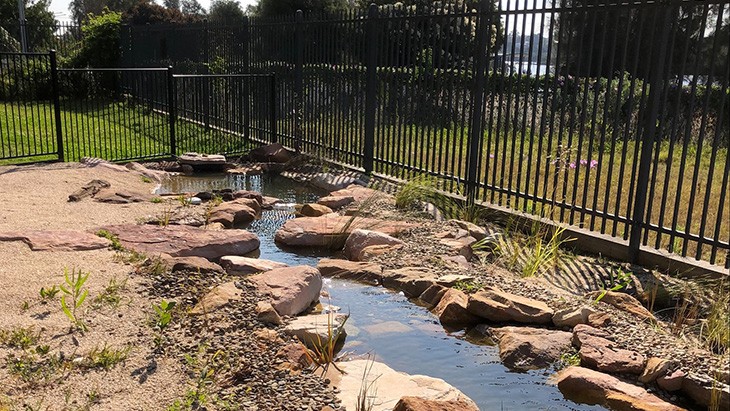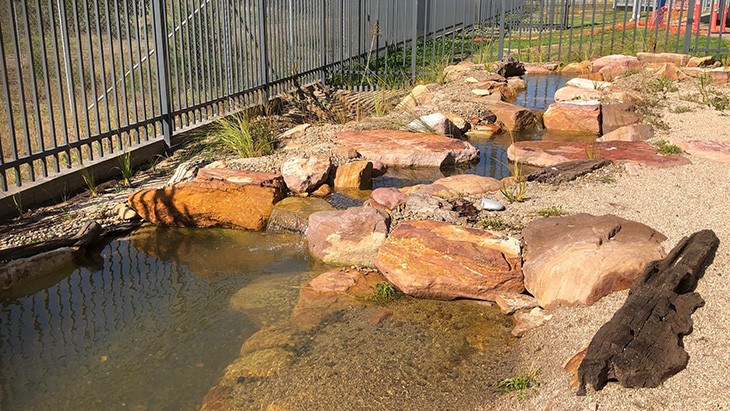Frog Hollows Project at Wentworth Point Public School
Release date: 02 November 2023
An exciting project completed in Term 3 2023 at Wentworth Point Public School gives an endangered frog species a chance to thrive.
The Frog Hollows project, co-funded by the Sustainable Schools Grant and school funding, highlights the power of community engagement and collaboration. The Sustainable Schools Grants program offered NSW public schools and preschools up to $15,000 for student-led initiatives that improve the environment at schools. Over the last 4 years, the program has supported over 600 schools to develop hands-on sustainability learning activities that will benefit the environment.
“The students were ecstatic when they found out about the grant and that the pond would be built at school. It was one of the greatest moments to announce they would be able to participate in planting. To hear the children cheer from excitement, high fiving each other and clapping was a proud moment,” said relieving Assistant Principal Rachael Preston.
Once common in Eastern NSW, the native green and golden bell frog is now a protected species due to loss of habitat and disease.
Students create a new frog habitat with expert sustainability advice
The project’s aim is to create an outdoor learning space that is accessible across all stages to teach about sustainability, biodiversity, the life cycle of native plants, insects and animals.
During the design and planning stages, a range of excursions and incursions connected students with the school pond site, community experts and their local environment. Learning experiences included weekly walking trips to the Parramatta River, the Brickpits and local Blaxland Park.
The practical advice of ecologists and Aboriginal Elders provided students with advice about how to successfully build the frog pond.
Real world learning engaging the whole school community
Ms Preston said listening to the children’s showcases were a project highlight.
“Walking around the room listening to all the children presenting their prototypes showed us how deeply they understood the topic beyond the classroom. It was one of those moments where you think 'this is why I do this,” Ms Preston said.
“You could hear the excitement, passion and extensive knowledge the children had about the geography of our local area, how it has changed over time due to settlement, what species are endangered and why.
“Moreover, they were using their understanding of persuasive language to present a speech to an unfamiliar audience. A huge accomplishment for students who are primarily from a language background other than English.”
The next steps are to focus on the garden and create an outdoor learning space for students. The school also houses a vegetable garden that encourages the reduction of waste using recycled materials for the garden beds, a rain tank, and a compost bin.

